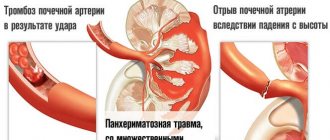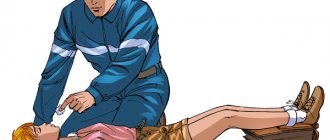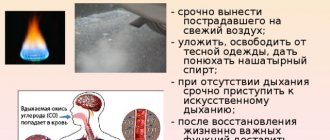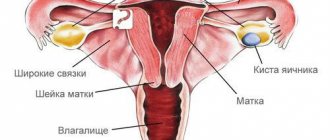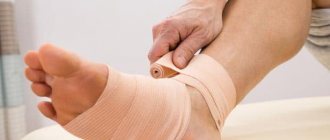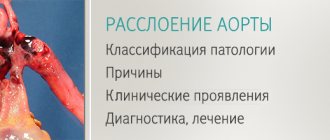How does dizziness manifest?
We recommend
“How to care for a bedridden elderly person” More details
During dizziness, it seems to a person that not only his head is spinning, but that he himself is spinning, or that the objects around him are spinning. When dizziness occurs in older people, nausea may occur, a feeling similar to intoxication and other unpleasant symptoms may occur, including loss of consciousness and falling.
Old people begin to blur before their eyes not only from external influences, but also due to the occurrence of diseases. Perhaps any person over the age of sixty has at least once felt suddenly dizzy. If this happens regularly, it becomes a serious problem that interferes with a normal life. In order to properly deal with the disease, it is important to determine the causes of its occurrence.
Causes of dizziness in older people
Why might an elderly person feel dizzy? Most often, this is an age-related manifestation, caused by problems with the vestibular apparatus, neurological abnormalities, vascular diseases, and damage to nerve cells. Here are some of the most common causes of dizziness in older people:
- Consequences of injury.
- Sudden changes in pressure.
- Chondrosis of the cervical spine.
- Brain tumor.
- Diabetes.
- Arrhythmia.
- Ischemic disease.
- Damage to the eardrum.
- Meniere's disease (fluid accumulation in the inner ear).
- Benign tumor of the auditory nerve (neurinoma).
- Depression, fatigue, lack of sleep.
But the main thing that causes dizziness in older people is:
1. For 30–35% of cases - BPPV (benign positional paroxysmal vertigo). In older people, this is usually a consequence of degenerative changes in the area of the inner ear. The receptors of the vestibular apparatus are irritated by microscopic deposits (otoliths), resulting in dizziness. More often, older people feel such symptoms when they wake up in the morning.
2. Diseases of the cerebral vessels, so-called cerebrovascular diseases, and atherosclerosis. A characteristic manifestation of these ailments is insufficient blood supply to the brain due to partial damage to blood vessels. This is a very dangerous condition, and dizziness with it is the most harmless symptom.
3. Poor blood circulation in the brain (stroke). According to statistics, stroke occurs in 450 thousand people in the world every day, and over 80% of them are old people. One of the manifestations of a stroke is dizziness, which can recur in a person even after undergoing a course of treatment.
4. Drug abuse (polypharmacy). Taking a large number of drugs at the same time increases the risk of adverse symptoms. It is impossible to list at once all the pills that cause dizziness in older people. Typically these are heart medications, blood pressure medications, painkillers (analgesics), antibiotics, beta blockers, diuretics, non-steroidal anti-inflammatory drugs, tranquilizers and antidepressants, sleeping pills, anti-seizure medications.
We recommend
“Lonely elderly people: how to help them” More details
5. Dizziness in elderly people with normal blood pressure is rare; rather, the cause of mild weakness and faintness is too high or too low blood pressure.
6. Weakened (due to old age) vestibular apparatus. This can cause not only a feeling of unsteadiness, but also dizziness in older people.
7. There are a number of concomitant diseases for which you have to take a large number of medications (diabetes mellitus, Alzheimer's and Parkinson's disease). Then the cause of dizziness in the elderly can be both medications and the disease itself.
8. Many older people have a very difficult time psychologically and emotionally experiencing the changes in the body that come with age. They are afraid of losing consciousness or falling if they suddenly feel dizzy. Attacks of anxiety and even panic can cause so-called psychogenic dizziness, and with them comes chills, arrhythmia, general weakness, lack of air and faintness.
A serious problem that requires treatment is severe dizziness in older people with a weak vestibular system. Objects seem to be moving in a circle; a person cannot clearly perceive their outlines. This is a common occurrence in older people with hypertension. There are also other symptoms:
- spots before the eyes;
- feeling of blindness;
- feeling that the head has become heavy;
- feeling as before loss of consciousness;
- weak legs and arms, apathetic state.
Sometimes isolated manifestations of such symptoms occur, then this most likely means that the person is simply overtired. After rest, the unpleasant feeling will pass.
However, such signs should not be ignored if they occur after a stroke or, for example, during menopause. This has serious health consequences. An elderly person may become frightened during an attack, faint, or injure himself - all this is very unsafe.
Even one of the listed symptoms is a reason to immediately consult a doctor. The reasons for poor health must be found out. Let a therapist, endocrinologist, or neurologist examine you. The process can be complex and lengthy; you will have to examine the central nervous system and other organs and take the necessary tests.
Recommended articles on this topic:
- Boarding home for the elderly: features and rules of choice
- Low blood pressure in older people: causes, symptoms and treatment
- Health of the elderly: old age is not a problem
Additional signs of dizziness
If dizziness is episodic, then this should not be a cause for concern. However, in case of periodic attacks or the manifestation of certain pathological conditions, it is recommended to undergo a medical examination and, if necessary, treatment.
Signs indicating urgent treatment for vertigo:
- Sudden weakness.
- Lack of appetite for more than a day.
- Blurry image before the eyes.
- Noise and buzzing in the ears.
- Low (below 55 beats/min.) or high (over 100 beats/min.) pulse.
- Coldness in lower and upper extremities.
- Unclear speech.
- Blood pressure surges.
The appearance of at least one of these signs indicates the presence of a serious problem and is a reason to see a competent specialist. After the examination, the doctor will prescribe a course of treatment and other measures to promote a speedy recovery.
First aid for severe dizziness in an elderly person
Here's what to do if there are complaints of weakness and dizziness in older people:
- put the person horizontally as soon as possible;
- ensure air flow into the room;
- eliminate possible sources of noise: loud music, radio, TV;
- remove too bright light (but there should be enough lighting).
If the person is dizzy but not vomiting, give the person water or tea with sugar. You can wipe your face with a damp cloth (not too cold). Atropine (0.1% solution, 8–10 drops) helps well. If the patient's condition does not improve within an hour, call an ambulance.
Often, older people immediately experience dizziness and nausea, and black spots appear before the eyes. At the same time, the person turns pale, body temperature drops. Such symptoms can be heralds of a hypertensive crisis, and if you do not quickly call an ambulance, it will lead to myocardial infarction.
It is also worth paying attention if a person experiences speech impairment, numbness in half of the face, headaches, or fainting. All these are signs of a cerebral stroke, and if doctors are not called urgently, the life of the pensioner will be threatened.
We recommend
“Interests of older people: how to improve the life of a pensioner” Read more
Meniere's disease
Why does it happen? This chronic disease of the inner ear leads to an increase in the amount of fluid in its cavity, paroxysmal dizziness and progressive hearing loss.
How it manifests itself. Attacks of rotational vertigo, the frequency of which in elderly patients decreases as hearing deteriorates. But instability often becomes almost constant.
How to treat it. In most cases - with medications. If these do not help, a labyrinthectomy is an option, a procedure in which the affected vestibular apparatus of the inner ear is removed or “disabled.” After this, the patient must undergo a course of vestibular rehabilitation (a special version of vestibular gymnastics).
Diagnosis of dizziness in older people
The success of treating dizziness in older people depends on correct diagnosis. Often the cause of dizziness is changes in the functioning of the brain. In this case, it is necessary to conduct appropriate research. Surveys of this kind are carried out according to the following scheme:
- Determine what type of dizziness is.
- Find the reasons for its appearance.
- The presence of neurological or ENT symptoms is determined.
- Additional methods are used to study the patient’s condition, depending on what pathologies were identified during the examination and interview.
1. History taking and external examination.
First you need to make sure that you really have dizziness. Old people often mistake one condition for another and may mistake nausea or blurred vision for dizziness.
An examination is very important; you need to take a closer look at how the person’s coordination of movements is, and whether the reflexes work normally. You should understand why weakness and dizziness occur in older people, what factors influence the development of the disease, and how it progresses.
If the head begins to feel dizzy gradually, this is classified as dizziness of central origin, and if suddenly and quickly, this is classified as peripheral. The latter are characterized by tinnitus and poor hearing (these symptoms are called local disorders). Central vertigo is accompanied by damage to the cortex and brain stem. A general serious condition with frequently recurring vomiting are signs of vestibular disorders.
To identify the diagnosis, the patient is asked to change the position of the head, for example, tilt it to the left or to the right. If the head becomes more dizzy when bending over, then we are talking (most often) about benign dizziness in older people, the cause of which is a weak vestibular apparatus.
Through a survey, they will find out what autoimmune or inflammatory diseases, intoxications (medicines or alcohol), and head injuries have been suffered. Check to see if the person being examined has nystagmus. Nystagmus is an oscillatory movement of the eyes independent of the patient. They study the spontaneous form of nystagmus (caused by gaze), when a person first looks straight ahead and then moves his eyes to the side.
Another diagnostic method is the Hallpike test. The patient is placed on the couch in a sitting position, he looks to the right, turning his head about 45 degrees. Holding the person by the shoulders, he is asked to quickly lie on his back so that his head hangs off the couch. The same is repeated by turning the head to the left.
An otolaryngologist examines the outer, middle, inner ear, eardrum, removes wax plugs, checks for infections (acute or chronic), and finds the consequences of injuries.
2. Laboratory and instrumental diagnostics.
CT and MRI are prescribed to ensure the absence of neoplasms and demyelinating processes. Structural pathologies (congenital or acquired) are identified. It may be necessary to take an X-ray of the skull (if there is an assumption that the person has new or old fractures).
We recommend
“Adaptation of older people: in modern society and boarding homes” Read more
The cause of weakness and dizziness in older people may be vascular dysfunction. In case of such suspicions, Doppler ultrasound of the cervical and cephalic great vessels is performed.
A complete blood test will help rule out the possibility of infection. If a pathogen is found, antibodies are determined for it.
If there is concomitant hearing impairment, the patient undergoes pure-tone audiometry. A person drinks Glycerol, after which one can notice better speech perception and recognition of low-frequency sounds. If such signs are found, then we are talking about Meniere's disease, which, as a rule, is accompanied by dizziness.
Dizziness against a background of apathy, hypochondria, accompanied by a decrease in mental activity and causeless painful health, indicate that the patient has a diagnosis of a psychiatric or neurological nature.
Diagnosis of nausea, weakness and noise in the head
When visiting a doctor with complaints of dizziness, headache, nausea, weakness, ringing and tinnitus, the patient first receives a preliminary diagnosis. For this purpose, an examination plan is drawn up, which includes the following studies:
- Comprehensive examination by a neurologist. The doctor conducts special coordination tests that distinguish benign paroxysmal positional vertigo from its other varieties, as well as a neurological examination, checking the condition of the cranial nerves, conditioned and unconditioned reflexes. The specialist conducts a detailed survey of the patient, identifying the main complaints, their location and time of occurrence, and connections with chronic diseases.
- General blood test, biochemical blood test, coagulogram. They are carried out to exclude anemia, acute inflammatory and infectious processes in the body, as well as tumor diseases of the blood and lymph. Also, thanks to these studies, the blood lipid profile, the tendency to thrombosis and vascular atherosclerosis are assessed.
- ECG and blood pressure measurement. Studies reveal a connection between the complaints that have arisen and arterial hypertension.
- X-ray, CT and MRI of the brain and spinal cord. MRI examination has advantages over other diagnostic options, as it shows a layer-by-layer image of all scanned areas. This allows you to minimize diagnostic errors, accurately determine the location and size of the pathological focus, and also conduct an examination in the shortest possible time. Magnetic resonance imaging is the method of choice for formations that do not originate from bone tissue, as well as the gold standard for examination in dyscirculatory encephalopathy.
- Ultrasound of cerebral vessels to identify pathological narrowings and blockages by blood clots.
- An audiogram and examination by an otolaryngologist to rule out problems with the inner ear and vestibular apparatus.
- Electroencephalography. Helps detect areas of epileptic activity.
Anti-dizziness medicine for older people
What drug treatment is used for dizziness in older people? Since the diagnosis is so common, there are a number of drugs that make attacks less frequent and have a beneficial effect on the brain. These are so-called nootropics, that is, drugs that accelerate neural processes in the brain. They are excellent for helping with memory loss, complications of mental activity, sclerosis and dementia. In addition, they can be prescribed to improve blood circulation, to combat prolonged fatigue, insomnia and depression.
Nootropics have a wide spectrum of action and are completely safe for the body. They can be given to children and prescribed to absolutely healthy people for whom maximum concentration at work is important. But you should not try to choose a drug for yourself; let a doctor prescribe it. The main nootropics are Glycine, Phenotropil, Piracetam, Cinnarizine, Bilobil.
We recommend
“Boarding home for the elderly: how to place an elderly relative there” More details
Any of these medications improves blood circulation in the vessels of the brain, strengthens the walls of blood vessels, fights hypoxia, and establishes neural connections in the central nervous system. Some drugs have a sedative effect. Medicines in this group improve cellular metabolism and activate energy processes inside cells. This increases the ability to perceive and remember information and learn. Nootropics are used to treat dizziness in older people because they improve mood and sleep, and make a person more active.
Here is a more detailed description of some nootropics:
- Piracetam is on the first step in popularity. Many people experience sleep disturbances when taking the drug, so it is not prescribed for use in the evening, only before lunch.
- Cinnarizine. It is prescribed not only as a nootropic, but also as an anti-allergy remedy. It should be borne in mind that the drug causes drowsiness, dry mouth, and disruption of the gastrointestinal tract.
- Glycine is good because it does not cause adverse reactions. A very popular drug among students, especially during study periods. The main component is gamma-aminobutyric acid, which accelerates brain function and is important for metabolic processes.
- Phenibut. Its main component is the same gamma-aminobutyric acid. This medicine may cause you to feel sleepy, especially when you first start taking it.
How else to treat dizziness in older people? Nootropics based on herbal components are also used:
- Vinpocetine. The basic component is the small periwinkle. It has a beneficial effect on brain function, improves blood circulation in areas of blood vessels susceptible to ischemia (relaxes their walls). Helps lower blood pressure.
- Bilobil. The main herbal component is ginkgo biloba. Supplies the brain with oxygen and glucose, making blood vessels more resilient in case of oxygen deficiency. Improves attentiveness, memory and learning abilities. Has a weakening effect on numbness of the limbs.
All of the above remedies and others like them should be taken for at least three months. Only after a month will the first changes be noticeable. The frequency of administration is usually one to three times a day. The treatment regimen must be prescribed by a doctor.
Lists of effective and safe drugs for older people
Medicine for dizziness for older people (the list of medications indicated for use is compiled by the attending physician) is selected individually depending on what disease of the central nervous system or blood vessels was diagnosed in the patient.
In this case the following can be used:
- nootropic drugs;
- muscle relaxants;
- anti-inflammatory drugs;
- multivitamin complexes.
Nootropics
The main purpose of nootropic drugs is to improve cerebral circulation and central nervous system functions. The table below provides a list of the most effective and safe medications in this category.
| Name | Characteristics of the drug |
| Vinpocetine | Vinpocetine is a drug that improves metabolic processes occurring in brain tissue. The active component of this drug is the chemical vinpocetine at a dosage of 5 mg per tablet. This medication is indicated for older people who suffer from dizziness caused by vascular diseases or cerebrovascular accidents. Therapy with this drug is carried out over a continuous course with a minimum duration of at least 2 months. Vinpocetine should be taken 1-2 tablets 3 times a day. Within 1 year, you can take 2-3 treatment courses with this medication. It all depends on the type of disease and the severity of dizziness attacks. The average cost of this drug is 40 rubles. for 50 tablets |
| Glycine | Glycine is an effective and absolutely safe nootropic drug that improves blood supply to the brain and has a beneficial effect on the functions of the central nervous system. The active ingredient of this drug is microencapsulated glycine in a dosage of 100 mg per tablet. This medicine is taken 1 tablet 2 to 3 times a day with a therapeutic course duration of 2-4 weeks. The medication is taken by dissolving the tablet inside the mouth. Elderly patients with dizziness that occurred after an ischemic stroke of the brain are advised to take 1000 mg of Glycine in the first 6 hours. The tablets are dissolved at intervals of 25-30 minutes. The average cost of this medication ranges from 29 to 41 rubles. per pack of 50 tablets. |
| Piracetam | Piracetam is a nootropic drug that comes in the form of red gelatin capsules. The active substance of this medication is the chemical compound piracetam at a dosage of 400 mg. This drug is used to treat elderly patients with signs of dizziness due to vascular diseases of the brain, central nervous system pathologies, and Alzheimer's disease. At the initial stage of therapy, Piracetam is prescribed in a dosage of 2 tablets 3 times a day before meals. As the attacks of dizziness disappear, the dose of the medication is reduced to 1 tablet, which should also be taken 3 times a day. The duration of the treatment course ranges from 2 weeks to 6 months. depending on the severity of the clinical case. The average cost of this drug is 65 rubles. for 60 tablets. |
A distinctive feature of nootropic drugs is that they normalize blood supply to the brain, stabilize the functions of the central nervous system, eliminate attacks of dizziness, but at the same time they have a minimum number of side effects.
Anti-inflammatory drugs for vascular compression
Elderly patients who suffer from pathological vascular conditions are prescribed non-steroidal anti-inflammatory drugs. Medicines in this category have an antiplatelet effect, eliminate signs of the inflammatory process, and improve general blood circulation in the body.
| Drug name | Characteristics of the drug |
| Aspirin Cardio | Aspirin Cardio is a drug in tablet form, which is produced on the basis of acetylsalicylic acid. The dosage of the main component is 100 mg per tablet. This medication normalizes general blood circulation, prevents the occurrence of dizziness, which is caused by thrombosis, diseases of the heart and blood vessels. Aspirin Cardio prevents the development of cerebral stroke. The dosage regimen for this drug involves taking 1 tablet once a day for 30 minutes. before meals, with plenty of liquid. The duration of treatment is determined by the doctor. The average cost of the drug Aspirin Cardio is 73-75 rubles. for 20 tablets. |
| Lornoxicam | Lornoxicam is an effective and safe non-steroidal anti-inflammatory drug with pronounced antiplatelet properties. The active component of this drug is the substance lornoxicam at a dosage of 8 mg in 1 bottle. This medication is created for intravenous and intramuscular administration. The use of Lornoxicam is indicated in those clinical situations where the appearance of attacks of dizziness is associated with compression of the walls of the great vessels. For example, in the presence of inflammatory processes in the cervical spine, where most of the large arteries supplying brain tissue pass. The dosage regimen for the drug Lornoxicam is intramuscular or intravenous administration of 8 to 16 mg of this drug. The duration of therapy is determined individually. The average cost of this medication is 532 rubles. |
Before prescribing anti-inflammatory drugs, it is imperative to establish the causative factors, the impact of which provoked swelling of the soft tissues and compression of the walls of blood vessels. The maximum therapeutic effect to eliminate dizziness is achieved with the combined use of NSAIDs and antiplatelet drugs.
Vitamin medicines
Medicine for dizziness for older people (the list of drug therapy used during treatment is compiled by a neurologist) is used to eliminate pathological symptoms, as well as combat the underlying disease that provokes it.
In medical practice, there are periodically cases where attacks of dizziness are associated with an acute deficiency of nutrients necessary for the stable functioning of the central nervous system. The table below lists vitamin and mineral complexes that normalize the functions of the cerebral cortex.
| Drug name | Characteristics of the drug |
| Medivitan | Medivitan is an effective and safe vitamin product with a combined composition. The active components of this drug are the following substances:
Medivitan is administered into the patient's body in the form of an injection solution by installing intravenous drips or performing intramuscular injections. The therapeutic dose of this drug is 5 ml 2 times a week. The duration of treatment is 4 weeks. In total, the patient should receive 8 injections of Medivitan. The average cost of this medication is 975 rubles.
|
| Folic acid | Folic acid is a medicine prescribed to an elderly patient with signs of vitamin B9 deficiency. A lack of this substance can lead to functional disorders of the central nervous system and dizziness. This medication is available in the form of tablets, which contain 1 mg of the active substance in the form of folic acid. The dosage regimen for this drug involves taking from 1 to 5 tablets per day. The total dosage depends on the severity of the vitamin B9 deficiency and the general health of the patient. The average duration of the therapeutic course is from 25 to 30 days, and the cost of this drug ranges from 23 to 46 rubles. for 50 tablets. |
| Multi-Tabs Classic | This is a balanced multivitamin complex, which contains all the vitamins and minerals necessary for stable functioning of the central nervous system, as well as preventing attacks of dizziness. This drug is taken 1 tablet 1 time per day immediately after meals or directly during meals. The price of this medication ranges from 346 to 455 rubles. |
Taking vitamin preparations can be carried out in combination with drug therapy with other drugs, the action of which is aimed at improving the functions of the brain and vestibular apparatus.
Muscle relaxants to reduce muscle tone
Medicine for dizziness for older people (the list of drugs that normalize cerebral circulation includes muscle relaxants) is selected taking into account the general condition of the patient. The table below lists medications that weaken the tone of muscle tissue, eliminate the effect of spasm, and also have a positive effect on the functions of the central nervous system.
| Name of the medication | Characteristics of the drug |
| Baklosan | Baklosan is a centrally acting muscle relaxant used for dizziness caused by brain tumors, cerebrovascular pathologies, and multiple sclerosis. The active component of this drug is the substance baclofen with a mass fraction of 10 and 25 mg per tablet, depending on the individual needs of each patient. At the initial stage of treatment, Baklosan is taken 5 mg 3 times a day. Over the next 3 days, the dosage of this medication is increased by 5 mg until a stable therapeutic effect is achieved. In this case, the elderly patient must be under constant supervision of medical personnel. The dosage of Baklosan is selected in such a way that the effect of reducing the tone of the walls of blood vessels is achieved, but the functions of the muscular system of the musculoskeletal system are not impaired. The average cost of this medication ranges from 247 to 260 rubles. for 50 tablets.
|
| Calmirex | It is a muscle relaxant that affects the centers of the brain responsible for muscle tone. The active component of this drug is the substance tolperisone hydrochloride with a concentration of 50 mg in 1 tablet. Calmirex is prescribed for use in elderly patients who suffer from attacks of dizziness resulting from pathologies of the cerebral vessels and the consequences of a previous stroke. This medication is prescribed in a dose of 1 tablet 3 times a day after meals. Calmirex should be taken with plenty of water. It is strictly forbidden to break the tablet or damage its protective shell. During treatment, the dosage regimen for this drug can be changed to 3 tablets 3 times a day. The duration of therapy is determined by the doctor individually. Calmirex is not recommended for use by elderly patients who suffer from severe kidney disease. The average cost of this medication ranges from 210 to 214 rubles. for 30 tablets. |
Taking muscle relaxants should only be done under the supervision of the attending physician or junior medical personnel. The above drugs are considered safe, but if the dosage is incorrectly selected, side effects may develop.
Antibacterial drugs
The use of antibacterial drugs in the fight against attacks of dizziness is advisable if the cause of their occurrence is meningococcal infections, which provoked inflammation of the cerebral cortex. The table below shows medications that can stabilize the patient's condition.
| Name of the medication | Characteristics of the drug |
| Ampicillin | Ampicillin is an antibacterial agent that belongs to the pharmacological group of semisynthetic penicillins. 1 tablet of this drug contains 1 g of active substance in the form of ampicillin sodium salt. A single dose of this medication is from 250 to 500 mg, and a daily dose is from 1 to 3 g. This amount of the drug is divided into 4 doses. The average cost of Ampicillin is 26 rubles. for 20 tablets. |
| Ceftriaxone | Ceftriaxone is a cephalosporin antibiotic with a dosage of 1 g in 1 vial. The medication is available in the form of a white powder, on the basis of which an injection solution is prepared for intravenous and intramuscular administration. The dosage of this drug is 1-2 g once a day, and its price is 22 rubles. for 1 bottle. |
The prescription of antibacterial agents is carried out by an infectious disease doctor after confirming the fact of inflammation of the meninges caused by meningococcal infection. As pathogenic microorganisms are destroyed, the patient’s well-being normalizes, and signs of dizziness go away.
Treatment of dizziness in older people with folk remedies
Along with drug treatment, it is permissible to use traditional medicine recipes. It is better to consult a doctor first so that the effect does not turn out to be the opposite. Some simple remedies:
- Sage. Brew 4 tbsp in 0.5 liters of boiling water. l. sage flowers. Leave for half an hour, you can mix with honey. Drink before meals. The decoction is a good tonic.
- Common parsley. Grind the seeds of the plant in a coffee grinder, brew 1 tsp in a glass of boiling water. crushed mass, leave overnight. In the morning, strain and take four times a day in equal parts, before meals. It stops dizziness well in older people.
- A collection of peppermint leaves, lemon balm, linden flowers and mistletoe. The herbs need to be brewed with boiling water and allowed to brew. It helps well with a weakened vestibular apparatus.
- Red clover. Brew 1 tsp in half a glass of boiling water. dried flowers, let it brew. Take 50 ml twice a day 40 minutes before meals. Helps cleanse the walls of blood vessels, activates life processes, and reduces dizziness.
- Elecampane root. Brew a pinch of crushed root in a glass of boiling water, let it brew for half an hour and strain. Take 4 times a day in equal parts. Tones, destroys infections and parasites, has a beneficial effect on the vestibular system and stops dizziness.
- Simple kelp (sea kale). Eat 1 tsp once a day. dried plant with water. Strengthens the immune system, helps cleanse toxins, normalizes the central nervous system, and stops dizziness.
We recommend
“Centers for pensioners: what they are and how to get there” Read more
- Veronica grass. Brew 1 tbsp in 250 ml boiling water. l. dried plant, infuse. Take the infusion warm, 80-100 ml before meals. Acts as a sedative and relieves dizziness.
- Onion. Scroll it through a meat grinder. The dizziness goes away if you breathe over the resulting mush. Mix chopped onion and honey in a glass jar in equal parts and leave in a cool place for 5 days. The remedy stops severe dizziness in older people and gives strength.
Basically, soothing herbal decoctions are used as herbal remedies:
- Chamomile tea with mint. Brew a tablespoon of dried herbs in a glass of boiling water and strain after 15 minutes. If you are not allergic to honey, you can add one teaspoon to your tea.
- Calming drink. Brew chamomile, mint and valerian (one teaspoon each) in 0.5 liters of boiling water and leave in a thermos for 12 hours. The best option is to prepare the decoction overnight, strain it in the morning, add honey and apple cider vinegar (one teaspoon each). Drink before meals.
- Dried ginger root is an excellent folk remedy for treating dizziness in the elderly. The root is taken in powder form three times daily before meals. Dry, powdered garlic is also a good tonic. You can take both remedies at once.
- Hawthorn relieves spasms and has a strengthening effect on the walls of blood vessels. A self-prepared infusion is much more effective than a pharmaceutical alcohol preparation. To prepare, brew one tablespoon of dry herb in 200 ml of boiling water and leave for half an hour.
- Dizziness stops after two weeks of taking plantain infusion.
You can also prepare tinctures:
- From garlic. Pour half a liter of alcohol into 300 g of garlic in a glass container and leave in a cool place for 15 days. Method of administration: add 20 drops of tincture to half a glass of milk. The product cleanses the body of toxins, fights infections, improves the functioning of the heart muscle, and relieves dizziness.
- From chestnut. Crushed chestnut buds are poured with half a liter of Cahors (preheated to 70 degrees) and kept for 15 minutes in a water bath. When it cools down, add two tablespoons of honey and a little vanilla powder. Take 50 ml before meals. Improves general condition and activates the activity of brain vessels.
Juice treatment:
- Carrot. Drink 0.5–1 glass three times a day before meals. Strengthens the immune system, relieves dizziness. An excellent remedy is a mixture of carrot, pomegranate and red beet juices (in a ratio of 3:2:2). Take the same way, 0.5–1 cup three times a day before meals. Improves the overall well-being of older people.
- Pineapple. Pineapple is a very strong antioxidant, rich in minerals and vitamins. Its juice rejuvenates the body and has a strengthening effect on the walls of blood vessels. Relieves dizziness in older people and is good for anemia.
- Juice from salad. Drink 25 ml 4 times a day if dizziness occurs due to heart failure or disorders of the central nervous system.
- Juice of young zucchini (possibly with the addition of carrot). It is taken in cases where dizziness occurs due to cardiac problems or high blood pressure.
Treatment of dizziness and noise in the head
The main principle of treatment for dizziness and noise in the head is its cause and mechanism of development. Therapy should be aimed at relieving the patient of the symptoms of the disease.
Drug therapy
If the patient has dyscirculatory encephalopathy, drugs are prescribed that normalize cerebral perfusion through an effect on the cardiovascular system. These are diuretics, beta blockers and vascular agents, as well as neurometabolites.
If symptoms occur due to high blood pressure, the doctor will prescribe antihypertensive drugs that control blood pressure levels and keep them within normal ranges. In this case, beta blockers, ACE inhibitors, calcium channel antagonists and diuretics help well.
For cerebrovascular disorders, nootropics, vasodilators, antiplatelet agents and anticoagulants are prescribed.
Kazieva Aminat Ziyavovna
Neurologist
Rostov State Medical University
Experience since 2012
After suffering injuries, to alleviate the condition, patients are recommended to limit physical activity and emotional stress, as well as symptomatic therapy to alleviate the patient’s condition. For this purpose, painkillers and anti-inflammatory drugs from the group of non-steroidal anti-inflammatory drugs are prescribed during periods of deterioration in health.
If the disorder occurs due to a functional cause, such as a tumor, then prompt surgical intervention is necessary.
If a patient has a migraine, the doctor should prescribe preventative treatment to prevent relapses of attacks, as well as medications to stop new episodes of migraine.
To correct anemia and its consequences, a specialist prescribes iron-based antianemic drugs, which can quickly increase the level of hemoglobin in the blood and relieve the symptoms that arise.
During menopause in women, the symptoms of menopause are corrected by menopausal hormone therapy.
Before a long trip in transport, you need to take special anti-motion sickness medications.
Physiotherapy
Physiotherapeutic procedures help, in addition to drug treatment, to get rid of the disease. The most common in treatment:
- Magnetotherapy.
- Laser therapy.
- Massage and physical therapy.
- Healthy swimming.
- Acupuncture.
With systematic, course use of these therapeutic methods, there is a decrease in the symptoms of the disease and their complete disappearance.
Nutrition
An important aspect in monitoring your health and well-being is your diet. A balanced diet rich in vitamins, micro and macroelements allows you to maintain normal blood counts, weight and nutrient levels in the body. Excluding easily digestible carbohydrates, sugar, fatty and fried foods from your daily diet will help avoid cardiovascular diseases, which lead to a systematic increase in blood pressure, as well as type II diabetes and surges in sugar levels.
Kazieva Aminat Ziyavovna
Neurologist
Rostov State Medical University
Experience since 2012
It is equally important to comply with the daily calorie intake, as well as proteins, fats and carbohydrates in the diet. Daily caloric intake is calculated based on a person’s weight and energy expenditure. With a calorie deficit and abuse of fasting and diets, the body experiences stress, which is accompanied by poor health.
Other treatments for dizziness in older people
Dizziness in older people is best treated by a combination of medications, folk remedies and the following methods:
- Physiotherapy. Properly selected exercises strengthen the spine and stimulate the functioning of blood vessels. Regular exercise can sometimes give more significant results than taking medications.
We recommend
“Gymnastics for the elderly: the best exercises for various diseases” Read more
- Physiotherapy. Modern technologies in this area are multifaceted; water, sound, light, magnetic, and laser treatments are available. Regular implementation of these procedures has a very beneficial effect on the nervous system.
- Reflexology, in particular acupuncture. It normalizes the functioning of the central nervous system, relaxes muscles and activates blood circulation.
- Psychotherapy. The likelihood of dizziness in older people is significantly reduced if measures are taken to relieve nervous tension and anxiety.
Entering into old age will be much easier if you take care of your health in advance. The physical capabilities of the body directly depend on compliance with the daily routine, proper nutrition, intensity of exercise, and abuse of bad habits. Think about what is easier - to prevent the disease or to treat it later? Provide your body with normal functioning, do not neglect examinations if you are already about sixty. Be active, walk more, look at the world positively. Then you definitely won’t have to deal with bouts of dizziness.
Intense dizziness
Vertigo can vary in intensity. In addition to changes in health status, sudden intense dizziness can be caused by several external factors. In this case, therapy is not required - you just need to change your habits and lifestyle.
Factors that provoke dizziness in old age:
- Strong physical activity. Often older people are interested in gardening and growing vegetables. Most often this happens during hot periods, which causes weakness, fatigue and, as a result, intense dizziness.
- Insufficient rest.
- Sudden rise from a chair, bed, etc.
- Traveling in vehicles at high speed (sickness).
Also, one of the causes of vertigo in women is menopause. The reason lies in certain hormonal changes that occur at this time.

